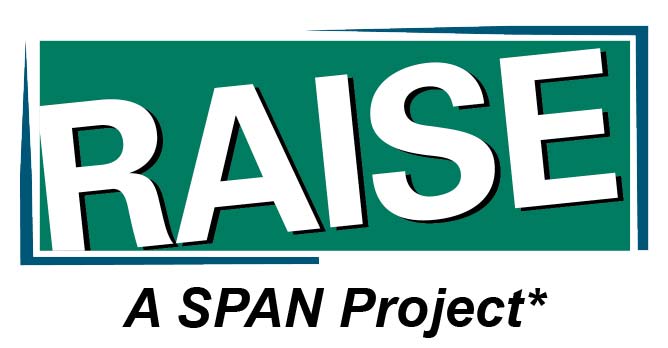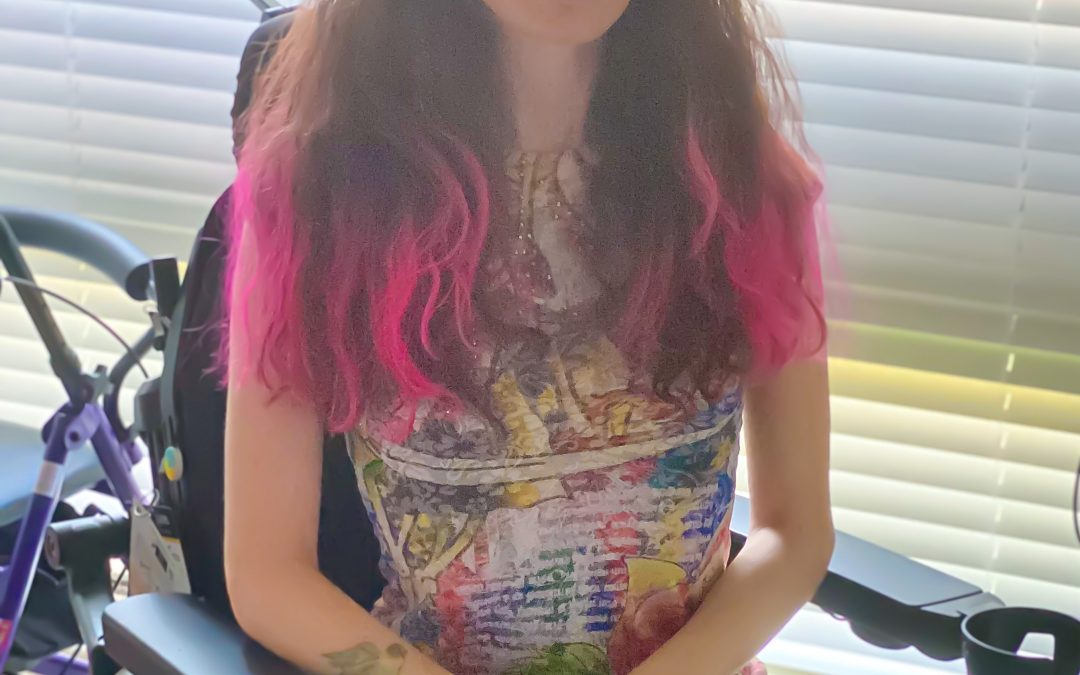My disabled journey to employment (and understanding), by Anomie Fatale
Before I became disabled, I wanted to be a doctor or medical researcher. It was a realistic goal. I had the intelligence, drive, grades, and most importantly, I had the health for it. I was a 3.9 GPA in college with an entrance into a doctoral program. In 2009 I had to medically withdraw. Symptoms of Chiari Malformation/Craniocervical instability came on and progressed to where I was losing consciousness from sitting up. The surgery I had done to treat it was successful at alleviating those symptoms. Unfortunately, there was a major complication that left me with quadriparesis, weakness in all four limbs for the rest of my life. People have asked me if the symptoms kept me from school and why I never went back to finish my degree. The answer wasn’t because I physically couldn’t. It was because of all the income limits put on people with disabilities in the U.S. making it not worth it to have a career.
I was approved for SSI soon after I became disabled. My homecare services were not approved until four years after the quadriparesis started. In that time, I had to suffer through many toxic living situations and put up with things no one should ever have to, just to get help with basics like laundry and a shower. Finally, I got affordable housing that was wheelchair accessible. It was subsidized and in a very dangerous area. I lived there alone, and showered in the sink. I allowed homeless people to stay with me so that I could get help with the apartment.
In 2013 I was approved for homecare services through Medicaid. Finally with the housing and homecare support I needed; I was ready to try working again. I got a part time job that made $1,000 a month. I reported this income, and SSI made the adjustment with their rules of “For every $2 you make, we take $1 away from your SSI benefits.” They never took into consideration that my working my income was taxed. Making money meant that my subsidized housing rent went up, my food stamps went down, and I lost assistance for paying medical bills. I told myself it was worth it because it got me out and doing something. Unfortunately, at the job I was at, there was a payroll error and they had to pay their employees a few days late. This shouldn’t have been a problem, but because I was on SSI that put my income above the monthly earning period. So, because it was late, it would have counted as making too much in the next month. I asked my employer what I should do. I was advised to quit my job and not accept money that I legally had earned so that it did not compromise my medical assistance. So, I did.
I didn’t try to work again until I was able to get off SSI and onto SSDI through my mother retiring, and got out of public/subsidized housing. The SSDI rules seemed much fairer. Anyone can work up to $1,310 a month and nothing is subtracted from the SSDI cash benefits. But this is not true for everyone, only disabled people who do not need homecare. Those that require homecare lose services that are paid for by Medicaid if they earn or save more than the state set cap. I told myself that as far as working part time, I needed to find a simple job that would make as little money as possible but still be something to improve my quality of life. I did not consider that working a few hours a week would equal the same amount that I would lose in my food stamps. Further, my employer told me I wasn’t allowed to have my aide with me at work. So, without the help I needed in the bathroom, I tried to use a “go-girl” urinary funnel, and failed miserably. Oh, and the dress code for that job was khaki pants. Such an embarrassment. Working was not worth it.
There is an underlying systemic belief that if you’re working then you should be paying for your homecare, or not need homecare in the first place. However, unless I’m making over 6 figures, there’s no way I can afford my homecare on top of the costs of living. The presumption is that by limiting the amount people can earn and still receive medical assistance/homecare to only abject poverty, they’ll limit the amount of people who will depend on Medicaid and “the system.” The truth is, all that does is make people chose to not work because needing our services is our #1 priority. The amount of disabled people that aren’t millionaires that need homecare doesn’t change at all. All it does is keep all of these people from making taxable income for the government. The ableism is costing our government money.
Two major developments have happened for people with disabilities.
The first, was the introduction of ABLE accounts. In these accounts we can have money gifted, or money earned that will not compromise benefits. Money in these accounts can be used for things related to disability needs and basic living expenses. But since we are systemically stuck in poverty, any of our money go directly to disability and survival related expenses anyhow.
The second, and I think the biggest are medicated by programs for workers with disabilities. Under these state-run programs workers with disabilities who rely on homecare/Medicaid can work and earn up more and not have those services cut or compromised. My best friend has a progressive degenerative condition but working has given her purpose to achieve and stay positive through it. She was told by a financial adviser that when she progresses to where she needs homecare, she’ll have to quit her job. Not because she can’t work but because she would then need the Medicaid for an attendant. No one should ever have to choose between having a career or getting the help for their basic daily living needs. When I found out about Medicaid buy-in, I immediately told her. It was definitely an amazing moment, hearing it in her voice when she actually realized what I was telling her: that she can keep her job as long as she wants to. For me the major changes are that I can work the maximum amount for SSDI, and get married without losing my services.
Employing people with disabilities is not only important for boosting the economy, but for the much needed integration of people with disabilities into society. We’ve been held back and isolated for so long. It’s time for us to belong in the real world and be recognized for our capabilities as employees, coworkers, friends, family members and partners. Our lives may be more difficult with the extra obstacles we face, but they are no less valuable. We are just as capable of contributing when our basic medical assistance needs are being met.

Alex Wegman Family Picture
Did you like this article? Are there other topics you’d like to see us publish on? Do you want to apply to be a guest blogger? Please take our quick, 3-question survey and let us know what you think!
Take Survey: http://survey.constantcontact.com/survey/a07eg1rmj5jjrasph9l/start


